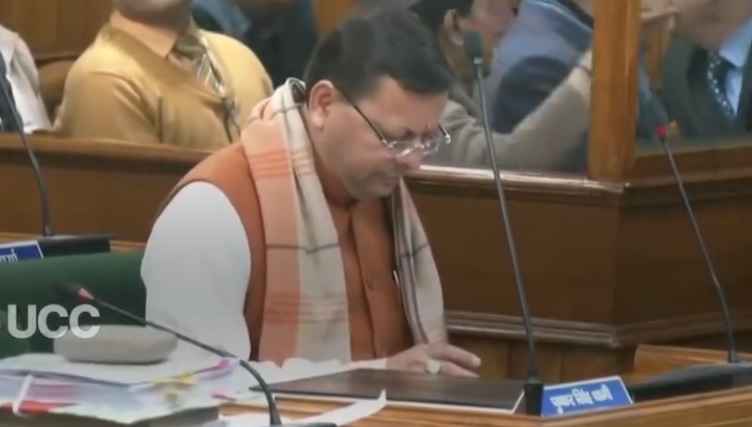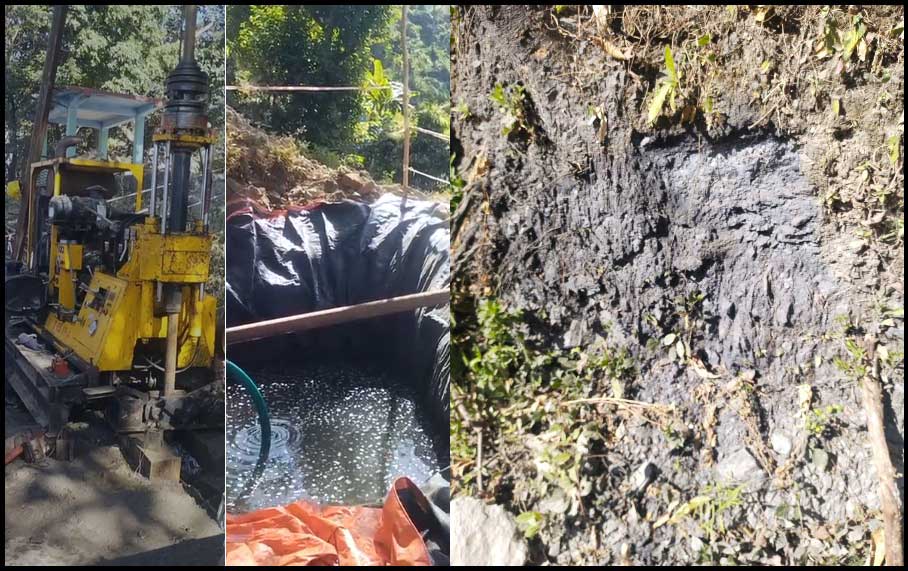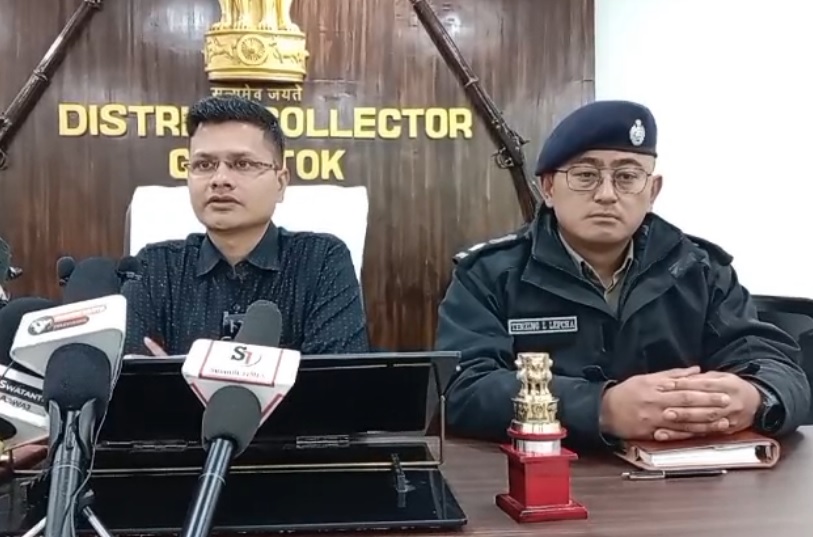
Dehradun, 7 February : In a noteworthy advancement, the Uttarakhand Legislative Assembly unanimously approved the groundbreaking Uniform Civil Code Bill on Wednesday.
The bill received approval on the third day of the special session of the Uttarakhand Legislative Assembly, during which numerous leaders from the Bharatiya Janata Party (BJP), including Chief Minister Pushkar Singh Dhami, staunchly endorsed the bill.
This move makes Uttarakhand the pioneer state in the nation to enforce the Uniform Civil Code. The Bill must now obtain Governor Gurmit Singh’s endorsement to be enacted into law in Uttarakhand.
On Tuesday, Chief Minister Pushkar Singh Dhami introduced the Uniform Civil Code (UCC) Bill in the Uttarakhand Assembly. This bill aims to establish uniform laws governing marriage, divorce, land, property, and inheritance in Uttarakhand, fulfilling a pledge made prior to the 2022 assembly elections.
The Uniform Civil Code Uttarakhand 2024 Bill, introduced by Chief Minister Pushkar Singh Dhami-led state government, passed in the House.
After passing the UCC Bill in the Assembly, Uttarakhand has become the first state in the country to implement the Uniform Civil Code. pic.twitter.com/LKx8gTLr5w
— ANI (@ANI) February 7, 2024
CM Dhami attributed the initiative to Prime Minister Narendra Modi, acknowledging his guidance and inspiration. “With the guidance and inspiration of Prime Minister Narendra Modi, today, we are going to fulfil a promise that we made to the people of the state before the 2022 assembly elections to bring a Uniform Civil Code in the state,” CM Dhami stated.
#WATCH | Dehradun: In the Uttarakhand Assembly, CM Pushkar Singh Dhami speaks on UCC, “The Uniform Civil Code will give the right to equality to everyone without any discrimination on matters like marriage, maintenance, inheritance and divorce… The UCC will mainly remove the… pic.twitter.com/DKnANXBmsN
— ANI (@ANI) February 7, 2024
“Our government, assuming complete responsibility and inclusivity of all societal segments, has today introduced the Uniform Civil Code Bill in the Assembly. This marks a historic moment for Devbhoomi, as Uttarakhand moves closer to becoming a robust supporter of Prime Minister Narendra Modi’s vision of ‘One India, Best India’,” he added.
Uttarakhand Minister Prem Chand Aggarwal mentioned that the UCC Committee undertook a thorough process, conducting 72 meetings and gathering suggestions from over 272,000 individuals via emails and WhatsApp. Members of the ruling Bharatiya Janata Party (BJP) expressed their support for the UCC Bill.
Understanding the Uniform Civil Code Bill Uttarakhand
1. Overview of the Bill
The Uniform Civil Code (UCC) Bill encompasses laws concerning various aspects of personal life, including marriage, divorce, succession, live-in relationships, and related matters. It aims to standardize these laws across different communities in India.
2. Provisions of the UCC Bill
a. Registration of Live-in Relationships:The UCC Bill mandates the registration of live-in relationships within one month of commencement.
b. Consent Requirement: Adults intending to enter into a live-in relationship must obtain consent from their parents.
c. Ban on Child Marriage: The bill imposes a complete ban on child marriage, ensuring the protection of minors.
d. Uniform Divorce Process: It introduces a uniform process for divorce, streamlining legal procedures.
e. Equal Rights to Women: Women of all religions are granted equal rights in ancestral property under the Code.
f. Marriage Age: The UCC sets the marriage age at 18 for women and 21 for men across all communities.
g. Mandatory Marriage Registration: Marriage registration is made mandatory for all religions, invalidating unregistered marriages.
h. Time Limit for Divorce Petition: Divorce petitions cannot be filed after one year of marriage.
3. Marriage Ceremonies
The UCC Bill recognizes various marriage ceremonies conducted according to religious beliefs, practices, and customary rites. These include ceremonies such as “Saptapadt,” “Ashirvad,” “Nikah,” “Holy Union,” and “Anand Karaj” under specific marriage acts.
4. Exceptions
The proposed UCC Bill exempts members of Scheduled Tribes and individuals whose customary rights are protected under Part XXI of the Indian Constitution from its application.
Conclusion
The Uniform Civil Code Bill seeks to modernize and standardize personal laws, ensuring equal rights and legal protections for individuals across different communities in India.






